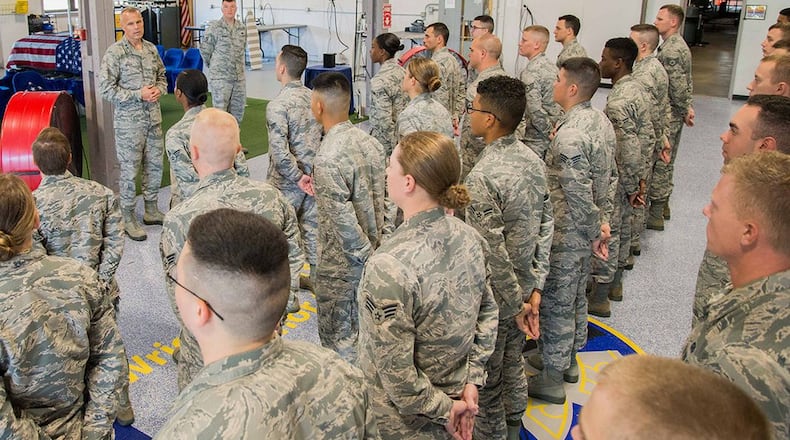The idea was to provide relief to workers amid the pandemic-induced recession. But few private businesses participated, fearing the smaller pay checks expected in 2021, when the deferred amounts must be paid back.
And indeed, the federal government’s legislative and judicial branches also opted out, noted Tony Reardon, president of the National Treasury Employees Union, which represents federal employees, including about 3,300 Ohio IRS and Customs and Border workers.
Those serving in the military and federal administrative employees earning less than $104,000 a year were not able to opt out of the deferral. Now, unless Congress takes action, those same workers face a drop in take-home pay, beginning next month.
Only Congress can forgive taxes, and so far, Congress hasn’t done that, although some legislation has been introduced.
If families didn’t save up for the possible hit, it could get painful, said Mike Meese, a retired Army brigadier general and president of the American Armed Forces Mutual Aid Association
“My guess is that there’s a not insignificant group of service members who just got used to the money and spent the money and now are going to be shocked in January,” Meese said in an interview.
Fairborn resident Stephanie Blair Snell, whose husband serves active-duty in the Air Force, called the situation “extra irritating.”
“We would have chosen to opt out had we been given the option,” she told the Dayton Daily News. “We were being responsible and putting that extra money away each paycheck, but Christmas came. Now the money is spent and we will be feeling this starting January.”
“I think it is a little bit frustrating,” said Jennifer Davis, a spokeswoman for the National Military Family Association and an Air Force veteran. “There was no option whether to participate or not in this payroll tax deferral.”
“We expect that some employees will struggle with what to them will be a hit to them to their income,” Reardon said.
The Social Security tax is set by law at 6.2%, and for most military members, the tax is set at just that, 6.2% of basic pay.
According to the Defense Finance and Accounting Service (DFAS), an E5 (a staff sergeant in the Air Force) with 8 years of service has a monthly basic pay rate of $3,306.30. The monthly Social Security tax liability for that airman is 6.2% of $3,306.30, which equals $204.99.
Meese calculates that a major (an O-4) with 14 years of service will see a $760 difference between December 2020 monthly pay and January 2021 monthly pay.
A planned 3% military pay raise will offset some of that, but the difference will still be felt, he said.
“You have to remember, it’s a reapplication of 6.2% of their pay that now is going to come out in the form of payroll taxes, plus they have to pay back the 6.2% of their pay that was deferred,” Meese said.
The tax deferral affects all enlisted personnel, warrant officers through CW-4 and officers through the rank of major and federal civilian employees earning $104,000 or less year. Those making more than $8,666.66 a month did not have taxes deferred.
“I hope that 90% or more of the people saved all their money so that they are ready for this,” Meese said.
His fear is that families “just saw this as a windfall and spent all the money.” They will face smaller paychecks just when they’re paying back Christmas bills, he said.
His advice: Try to save now and avoid piling up additional debt.
“That’s the key point,” Davis said. “We hope that military members are families are paying attention. Hopefully, they have been setting that amount aside.”
For active-duty service members from January through April 2021, the total amount of their 2020 deferred Social Security taxes will be collected on a prorated basis, divided evenly among pay periods starting in January 2021 through April 30, 2021, DFAS said.
For a reservist or guardsmen serving part-time, there may not be enough pay received by April 30, 2021 from which to collect all deferred taxes, so the collection may be extended, DFAS said.
Reardon is asking the administration to give federal employees more than four months to pay back the deferred money.
“It’s certainly not free money. They’ve got to repay those taxes in 2021,” he said.
Service members can get more information in their Leave and Earnings statements: Beginning in January, the LES will include the monthly collection amount in addition to a note in the remarks section that shows the remaining balance of deferred Social Security taxes, according to DFAS.
Davis believes many military families are struggling because of COVID, and military spouses already face a higher jobless rate, with frequent moves and other challenges.
“We know that financially this is a really tough time for military families, and we hope they’ve been able to set the extra (amount) aside these last few months,” she said.
About the Author

